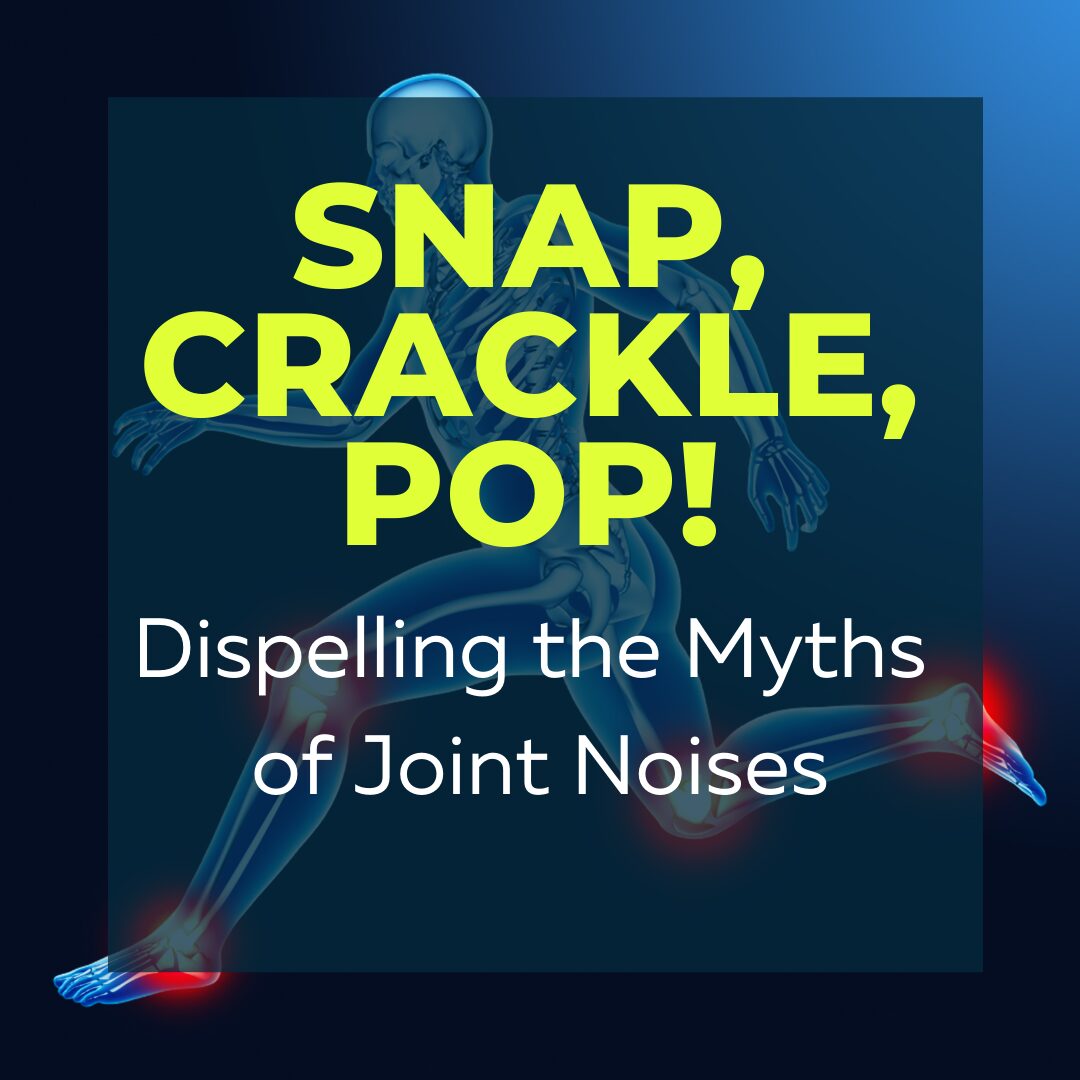You wake up in the morning and notice your hands feels a little stiff. With a quick stretch of your fingers you feel a “pop” and suddenly you can move your hands more freely.
Later, you’re at the gym, doing some squats (because it’s part of your strength training routine as a runner) and you feel your knee “clicking”with each repetition.
Many of us have experienced these joints noises and sounds at some point in our lives. Although they can be a little disconcerting, they are actually quite common and are rarely a cause for concern. This clicking and popping in the joint is more formally known as “crepitus.” Crepitus can occur at any joint in the body. As physical therapists, we get a lot of questions surrounding joint noises and crepitus. So, today we would like to answer those questions and dispel the most common myths surrounding joint sounds.
Is it normal for my joints to make noise?
It is very normal for joints to snap, crack and pop. It is also common for these joints sounds to increase with age. Generally, as long as these noises are not associated with pain, they are not a cause for concern.
What Causes Joint Noises?
Gas Bubbles:
Surrounding a joint is synovial fluid, which helps to lubricate the joint to prevent friction of one bone against another. Gas bubbles are one component of this synovial fluid, and sometimes these bubbles burst, creating a “popping” noise.
Tendon Sliding
Tendons are the tissue that connect muscle to bone. At times a tendon can make a popping noise as it snaps around a bony prominence or in/out of the groove where it normally lies. A common place for this to occur is a the hip. There are various structures that can cause snapping at the hip, one of which is the iliopsoas, causing a snapping as you move the leg forward and backward.
Manipulation of a joint:
Many of us at some point or another have either cracked our own back or a knuckle in our hand or seen a medical professional who has done a manipulation for us. As physical therapists, we manipulate joints often. While there are theories that a manipulation “pops” something back into place or resets a bone, much of the latest research really does not support this idea. Rather, the evidence more strongly supports that manipulations can: improve movement of a joint, create a pain-relief effect, and produce a neuromuscular reset, which can improve function of the surrounding muscular tissue.
Age-Related Cartilage Changes
As we mentioned above, it is common for joint noises to occur more commonly as we age. Over time, bone spurs may start to form and cartilage, the smooth surface at the end of a bone, starts to wear down, becoming increasingly rougher. These changes are typical of arthritis and can cause the joint to make louder noises as it moves. These changes in the bony and cartilaginous tissue may be pain-free for some time, but can begin to cause pain as they progress.
When Should I be Concerned or See a Doctor?
There are many situations where joint noises are considered normal, but there are a few scenarios in which we would consider these noises unhealthy.
- If there is consistent pain associated with the joint noise
- If the joint noise is also associated with onset of swelling
- If there is a significant weakness or loss of function after the joint noise
- If you notice buckling or giving way of the joint following the joint noise.
The above scenarios may indicate a more serious injury that should be evaluated by a physician.
Will Cracking my Joints Cause Me Harm in the Future?
There is no research to indicate that cracking/popping your joints will cause any negative joint changes that may lead to future issues, such as osteoarthritis.
Is there Anything I can Do to Stop Joint Noises?
While joint noises are often normal, some find them to be somewhat of a nuisance. There is no guaranteed way to resolve joint noises, but below are a few suggestions to minimize them:
- Stay active: the saying “motion is lotion” holds true here. Keeping your joints mobile and lubricated is a great way to keep them healthy. Walking, running, biking, hiking, playing golf, dancing are all great ways to keep our bodies moving. Find an activity you love and keep at it!
- Maintain mobility: keep muscles, tendons and joints mobile and flexible (cue the foam roller).
- Strengthen: by maximizing strength of the muscles that surround a joint, you can reduce the amount of stress or load on the joint itself.
We hope you found this helpful! Please reach out to us if you have any further questions!

